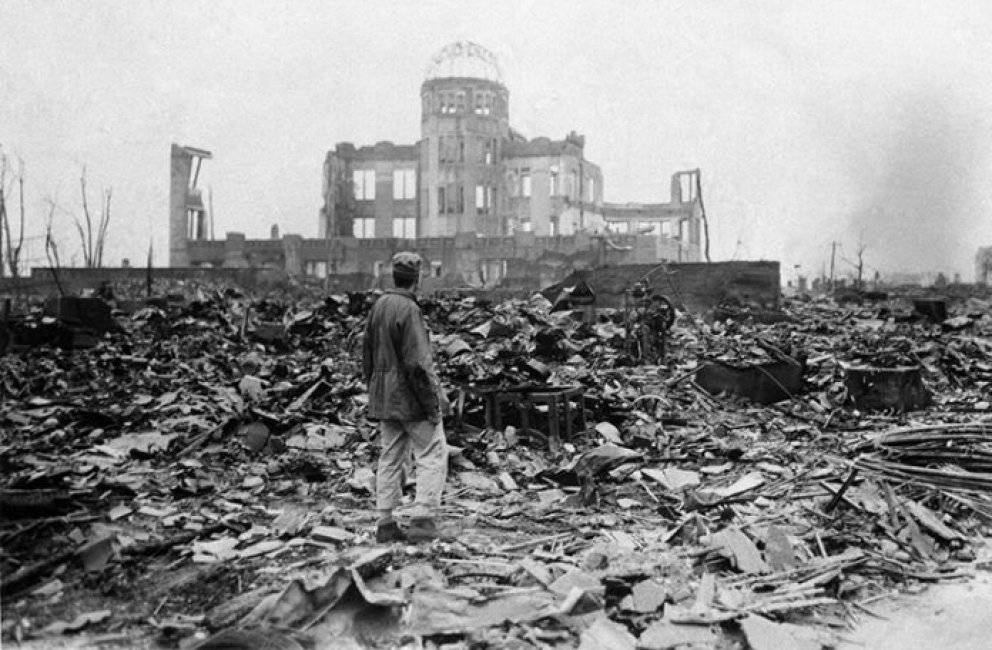
Hiroshima.
What is the use of a military alliance? During the Cold War, NATO and the Warsaw Pact formed military alliances to ensure their own defence in an exacerbated climate of mistrust without excluding the possibility that this might lead to confrontation in a war.
A nuclear war, moreover, a fact that was clear to NATO since it was a nuclear alliance, with nuclear missiles installed not only in the USA but also in several European member countries of the alliance.
This has resulted very concretely in a balance of terror, which on several occasions came close to provoking “the Apocalypse”. All of this is not in strict conformity with the Non-Proliferation Treaty that entered into force in 1970, but the prior founding of NATO on 4 April 1949 allowed this contradiction to be tolerated.
At the end of the Cold War, the dissolution of the USSR led to the end of the Warsaw Pact, meaning in practice the end of preparations for a confrontation.
Questions can be raised about the reasons which led the United States to want to keep NATO.
There was a fear that the USSR might re-emerge through the Commonwealth of Independent States (CIS), but above all NATO was to be the tool of the new total domination of the United States, over its former allies and over new members and partners.
Jeremy Corbyn has had the courage to say that if he comes to power, the United Kingdom will no longer be a member of NATO. For peace in Europe, and elsewhere, lies essentially in the management of conflicts in a non-warlike way, as Mikhail Gorbachev expressed it most aptly: “Everyone must ensure the security of the other.”
In 2017, has a collective amnesia taken hold?
The time of ideological war between communism and capitalism is distant, but there have been many wars between countries with close ideologies, close religions, close economies, and common interests.
To prepare for war is already to contemplate war. In 2020, the Review Conference must assert that the existence of a nuclear alliance is not compatible with the NPT.
Dominique Lalanne
Abolition des armes nucléaires
Maison de Vigilance (AAN) has merged 2 NGOs last year: La Maison de Vigilance (1983) and Stop essais/Armes nucléaires STOP (1989).
AAN is a member of Abolition 2000 and ICAN.
AAN attends NPT sessions and UN sessions for the Ban Treaty. It is a gathering of activists and more than 20 French NGOs (WILPF-France, Union Pacifiste, Pax Christi, Sortir du nucléaire, Non-violent Movement…).
Among other activities, AAN organises each year a Fast from 6 to 9 August, commemorating Hiroshima and Nagasaki and for support of victims of nuclear testing.












